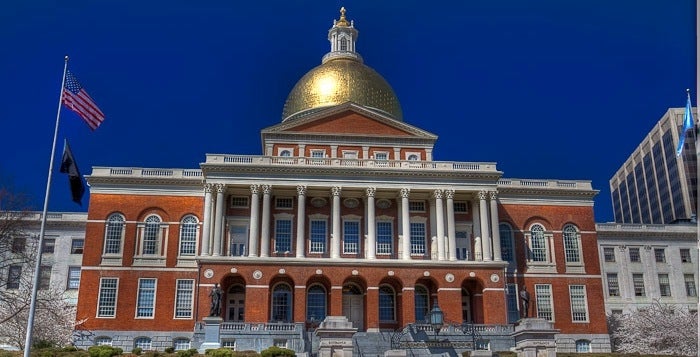House Ways and Means Chairman Brian Dempsey on Wednesday said he plans to build a state budget for fiscal 2017 using growth in existing state revenues and downplayed consideration of new or higher taxes next year.
Speaking after a hearing where experts testified about their expectations for growth of current tax revenues, the Haverhill Democrat said taxes are “not on the table at all” for the debate over spending priorities in 2016, a year when lawmakers will be up for re-election in November.
“We anticipate building a budget based on the revenue growth projections, and we will determine what that number is over the course of the next few days or weeks,” Dempsey told reporters. Asked for what went into his thinking on the matter, Dempsey noted increases to gas and sales taxes over recent years.
Changes in tax law have to originate in the House. The more liberal of the two legislative branches, the Senate was stymied last year in attempts to increase taxes on certain tobacco products and re-work state income taxes.
“Right now there has been no discussion about taxes other than the ballot initiative,” Senate Ways and Means Chairwoman Karen Spilka told reporters after the hearing. Petitioners have proposed a constitutional amendment that would establish a surtax on incomes over $1 million. That amendment, if it reaches the ballot, would not go before voters until at least 2018.
Kicking off development of next year’s budget, the state’s two legislative budget-writers on Wednesday anticipated lean times and praised efforts to put the state on more stable financial footing.
Spilka noted the income tax will “probably” make another statutorily mandated drop next year to 5.1 percent – administration officials on Tuesday confirmed the rate drop will occur – saving the average taxpayer $30 and continuing a 15-year trend where she said the state has experienced a nearly $2 billion annual drop in revenue as the tax rate ratcheted down from 5.95 percent.
“It’s easy to see how we must prepare for an ever-shrinking pot of funds,” the Ashland Democrat said.
Standard and Poor’s, a bond and credit rating agency, downgraded the state’s credit outlook from stable to negative last month, while the state maintained its bond rating at AA+, following several years of spending money from the rainy day fund.
The state’s stabilization fund has a balance of $1.2 billion, which Dempsey said is about half as large as it should be. Lawmakers have faced criticism of late from drawing too heavily from the fund during recent years marked by economic growth and rising tax collections.
“We will continue to prioritize stabilization. We will continue to prioritize pension funding,” Dempsey said. “At the same time we’ll continue to make sure that we’re providing adequate resources to those critical services that are so important to the citizens of the Commonwealth.”
Dempsey noted Massachusetts still outpaces the majority of the other states in the size of its reserve fund and said that the state should get credit for recently taking four years off its pension funding schedule “at a cost” of about $340 million over the last two fiscal years. He said, “Perhaps we could have directed that money toward the rainy day fund.”

